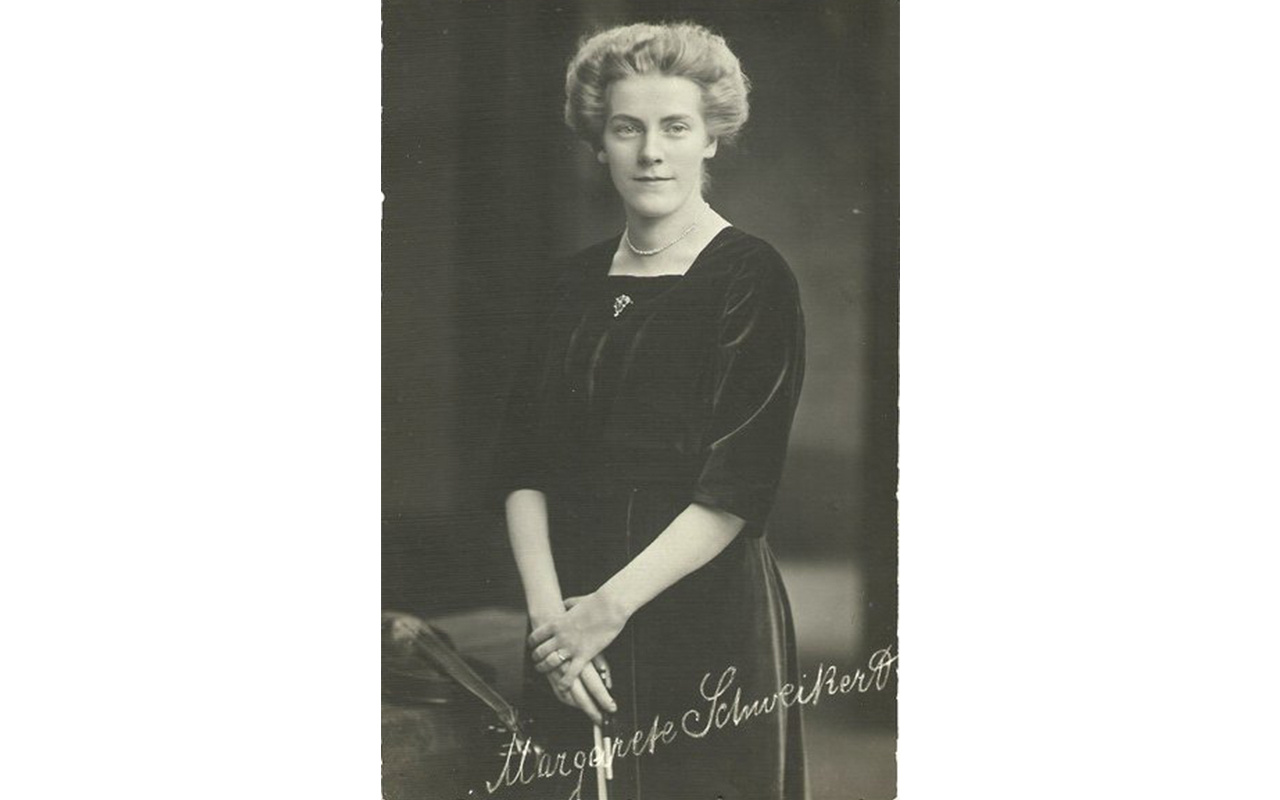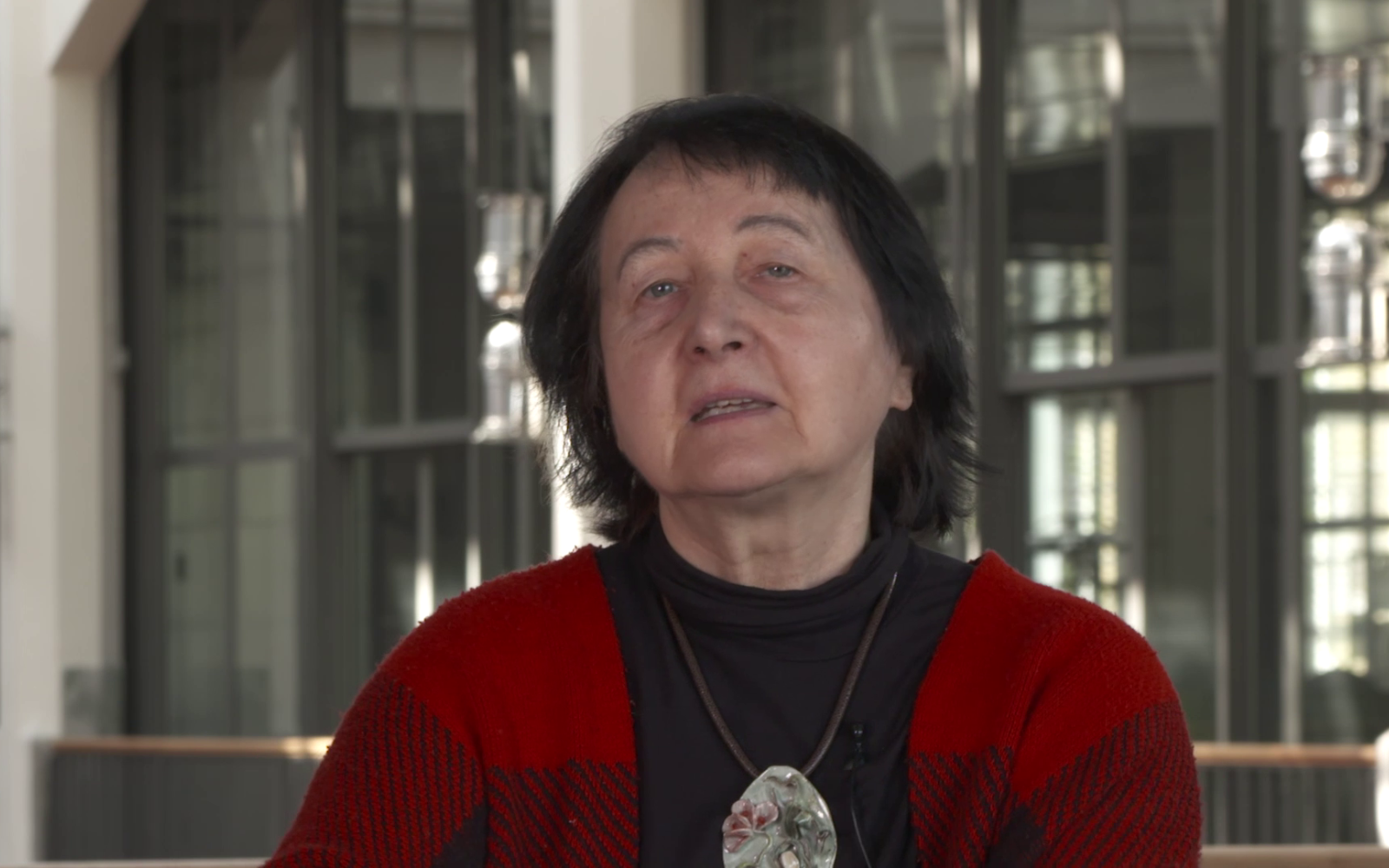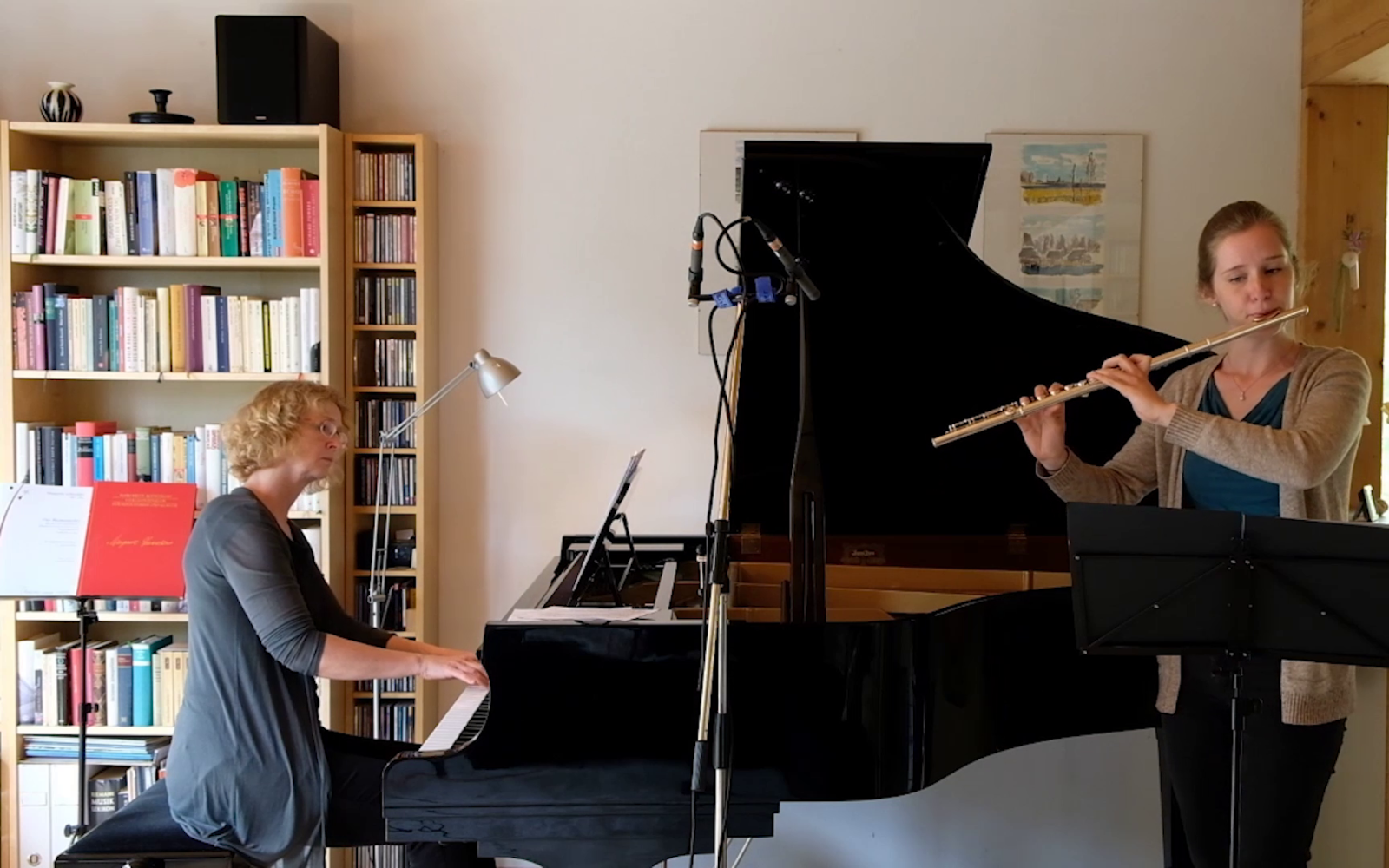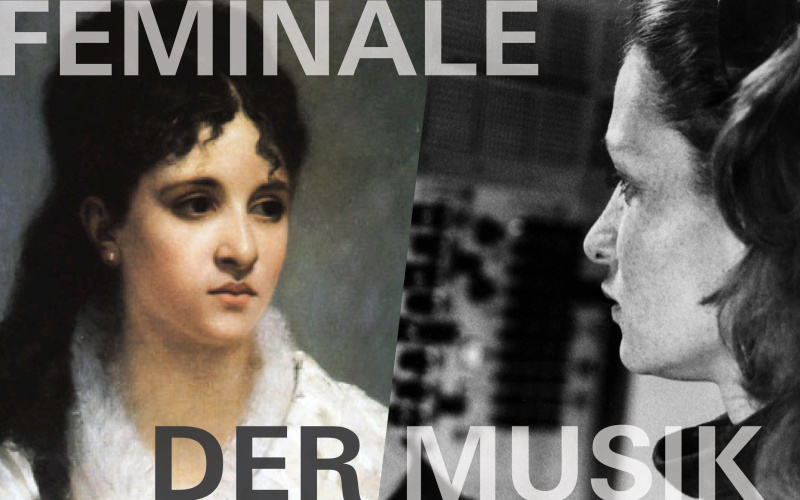Margarete Schweikert
Feminale of Music
»I'd have rather bitten my tongue off before I told Richard Strauss that I compose, too.« – Margarete Schweikert, after a visit to the composer's villa
Schweikert was born on February 16, 1887 in Karlsruhe. As a child Margarete Schweikert first took piano lessons with Theodor Munz and at the age of ten she made her first attempts at composition. Shortly before the turn of the century she became one of the first students at the newly founded Munz Conservatory. In 1904 she appeared in public for the first time as female composer when a few songs and the symphonic 57th Psalm for solo soprano, choir and orchestra were premiered.
She then transferred to the Baden Conservatory for her studies, where she took lessons in violin, piano and composition. A special feature at this time was that Margarete Schweikert did not, as usual, have her trousseau paid out on her 21st birthday, but wished to have a violin when she came of age.
In 1912 she published her first works and the Munich Wunderhorn Verlag published the Lieder Op. 3. During World War I, she was given the opportunity to substitute for the violin teacher at the Grand Ducal Baden Teachers' Seminar Prinzessin-Wilhelm-Stift in Karlsruhe and thus began her first teaching activities. During this time, Schweikert's first music journalistic works appeared, including a review of the world premiere of Pfitzner's Palestrina in 1917.
Her marriage to the banker Hermann Voigt and the birth of her daughter Christina in 1924 put her musical activities on hold and, as a result of the ban on double work imposed by the National Socialists in 1933, ergo that there was only one earner in the family, which in most cases was the husband, she was denied the opportunity to continue working.
After the end of the Second World War, Schweikert was able to resume her teaching activities and in 1950 she became an expert advisor for music at the Karlsruhe women artists' organisation GEDOK. From 1955 she was its chairperson. She died on March 13, 1957 in Karlsruhe. Margarete Schweikert's estate is housed in the Badische Landesbibliothek Karlsruhe, and includes piano and organ pieces, 160 songs and pieces for mostly unusual chamber music ensembles.
Sontraud Speidel, pianist and professor at the University of Music Karlsruhe, talks about the Karlsruhe composers Margarete Schweikert and Clara Faisst
Feminale der Musik: Sontraud Speidel spricht über die Karlsruher Komponistinnen Margarete Schweikert und Clara Faisst
Jeannette La-Deur (piano) is the artistic director of the Margarete-Schweikert project of the GEDOK Karlsruhe and editor of the music editions. Together with Elena La-Deur (flute) and Andreas Reibenspies (baritone) she presents pieces by the composer Margarete Schweikert.
Feminale der Musik: Wohnzimmerkonzert, Jeannette La-Deur (Klavier), Elena La-Deur (Querflöte) und Andreas Reibenspies (Bariton) spielen Stücke der Komponistin Margarete Schweikert
Compositions
Lieder an ein Mädchen, Op. 15: No. 4, Wenn ich, holder Liebreiz, dich berühre, published by and sung by Bernhard Bechtold, accompanied by Jeannette La-Deur (piano) recorded on 18.05.2018 as part of »Margarete Schweikert - Im bitteren Menschenland«.
Scherzando in G minor, published by and played by Sontraud Speidel (piano) to be found on the CD »Klaviermusik Karlsruher Komponisten«, 17.05.1996, Bella Musica
Disclaimer
-
Links to external websites of other providers
The ZKM’s express objective is the accuracy and current relevance of any information it makes available on this web site. Mistakes and ambiguities cannot, however, be fully excluded. For this reason, the ZKM is unable to fully guarantee the current relevance, accuracy, completeness or quality of the information it makes available. The ZKM is not subject to coercible legal rules and regulations and to any kind of damages of a material or immaterial nature that may possibly be caused by the use or non-use of the information provided, including free downloads. The ZKM reserves the right to change or delete, to temporarily or permanently suspend access to the web sites at any time.
The responsibility for »external content« to which access is made, in the form of e.g., links, presupposes, among other things, positive knowledge of illegal or punishable content. The ZKM has no influence on this external content and entirely distances itself from such content. Should the displayed external web site include unlawful or offensive content, the ZKM expressly distances itself from such content. When made knowledgeable of such content, the ZKM will deactivate the corresponding link. The same holds for external entries contained in Blogs and discussion forums, links directories, mailing lists and all other forums of databanks operated by the ZKM, the content of which is rendered possible via write access.
All content of the present web site (texts, images, video stills, videos, audios, graphics etc.), the structure as well as the layout of this web site is protected by copyright. These contents, and the information made available by the ZKM (e.g., text and image materials) are available exclusively for individual usage by users of this web site, and not for commercial purposes. These contents may be distributed and copied, made public on the Internet and used for commercial purposes only with the prior consent of the ZKM. Similarly, the placing of deep links, inline links, frame links or similar links in which the ZKM web site is not clearly evident as source, is permitted only with the prior consent of the ZKM. Messages and references to content »share« in social media (e.g. Facebook) do not come under the proviso of this reserve approval. For press releases and photographs valid instructions for usage can be found at: www.zkm.de/en/press/service.
All labels and trademarks named and protected by third parties are subject to the unreserved stipulations of the respective registered owners. That trademarks are not protected by third part rights cannot be assumed merely by mention of the name.
This disclaimer is to be understood as part of the ZKM’s Internet content. In so far as part or single formulations of this text do not, are no longer or are do not entirely correspond to this legal provision, the remaining parts of this document remain unaffected in its content and validity.



